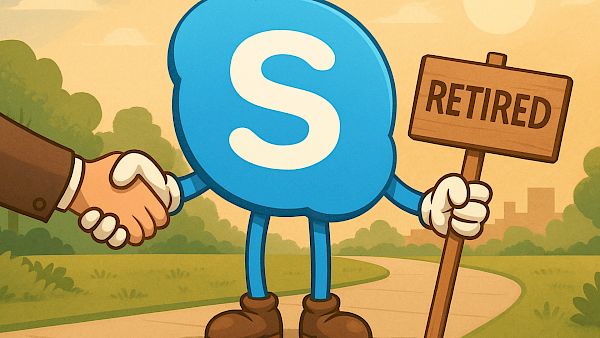Episode transcript The transcript is generated automatically by Podscribe, Sonix, Otter and other electronic transcription services.
Hello, everyone. Here is Ricardo Vargas, and this is the 5 Minutes Podcast. I will never forget this ringtone. This was, for 20 years, the ringtone and the meaning of communication. Skype was created in 2003 by a group of entrepreneurs in Estonia, and it completely changed the way we communicate over the internet. At that time, the idea of making free voice calls online seemed almost magical, and Skype made it a reality for millions of people, including me. And the impact was so great that in 2005, eBay bought Skype for over U$2 billion. A few years later, in 2011, Microsoft bought Skype for a staggering US$ 8.5 billion in one of the biggest bets on digital communications. And for many, many years, Skype dominated the voice and video call market, becoming an essential tool for families, businesses, and even job interviews, and of course, for our work as project managers. But over time, new solutions emerge, such as WhatsApp, Zoom, and Microsoft Teams, offering more integrated and modern experiences. So gradually, what happened? Skype lost relevance until Microsoft officially decided to replace it with Teams in several contexts, marking the end of the Skype cycle. It looks like a sad story, but what I want to talk to you about today is that the end of a cycle does not mean failure. When we plan and execute a project, we must understand that everything, absolutely everything, has a beginning, a middle, and an end, including the products we create. Skype. Success doesn't lie in still being around forever, but in having transformed global communications for nearly two decades. And look, 20 years in the technology environment looks like 2000 years in other sectors. In the same way, a successful project we may do may end because it's just fulfilled its purpose. And this should be a reason for celebration and not sadness. This mindset is essential when designing and planning our projects. What is their life cycle as a product? And beyond that, what will be the length of the cycle we want to undertake for the product or service that we are generating? Many projects remember that they don't fail because they stopped working or they didn't work, but because we try to make them stay alive when it's already time to end or evolve. Sometimes it's part of the game to retire technology. It's part of the game to retire a product. This is not a reason for failure. Closing a cycle with responsibility, planning, and strategic vision is one of the most important skills in project management. It's to know when it's time to stop. And this is critical. So, when you hear that Skype is being shut down, remember that the end can also be a sign of success. Think always about that, and I hope you enjoy this episode and see you next week with another 5 Minutes Podcast.

